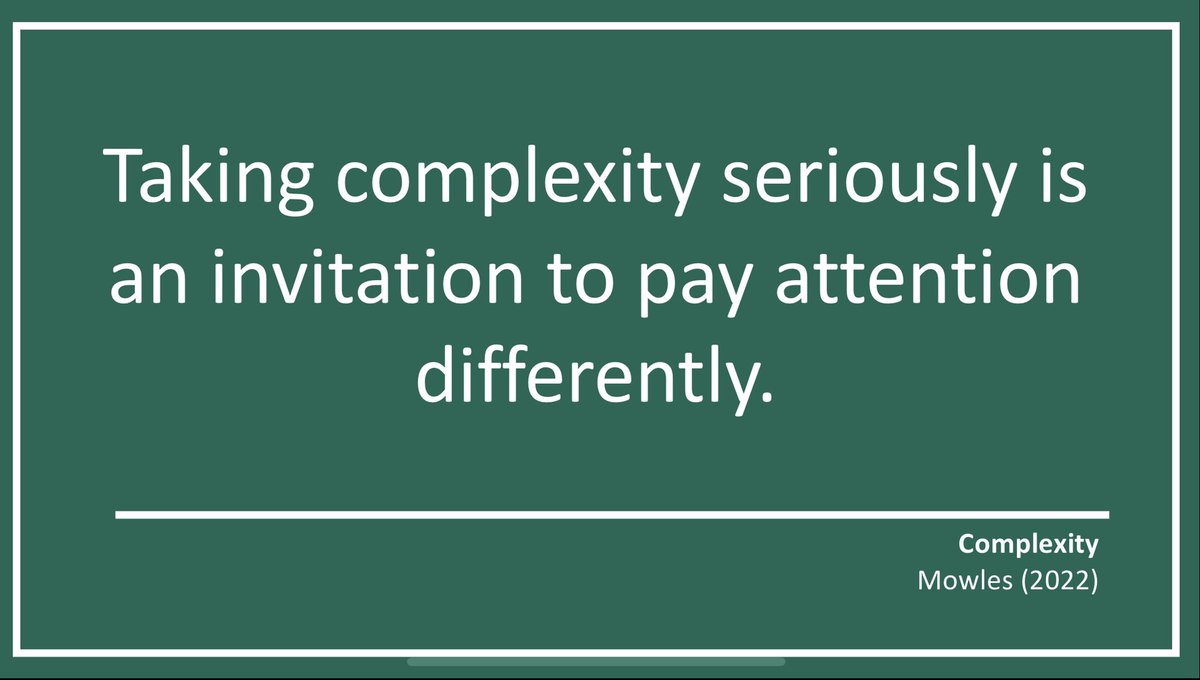If you missed my talk @researchED1 today, here’s a summary.
Blog post out in the morning…
#rED22
🧵
1/11
Blog post out in the morning…
#rED22
🧵
1/11

Leaders ought to develop their expertise.
Just doing the job isn’t enough to do this.
mrnickhart.wordpress.com/2021/11/05/poo…
2/11
Just doing the job isn’t enough to do this.
mrnickhart.wordpress.com/2021/11/05/poo…
2/11

We need to deliberately build our knowledge.
And this is liberating because is more inclusive than trying to get better at generic competencies like being inspirational or motivational.
3/11
And this is liberating because is more inclusive than trying to get better at generic competencies like being inspirational or motivational.
3/11

The formal knowledge got school leadership is more straightforward but it is our own unique school context that we need to become expert in.
4/11
4/11

We should probably try to organise our leadership knowledge by (interconnected) concepts.
@Ambition_Inst’s persistent problems and the NPQ golden threads are useful here.
Cc @overpractised cognitive structures
5/11

@Ambition_Inst’s persistent problems and the NPQ golden threads are useful here.
Cc @overpractised cognitive structures
5/11


There’s no single model of school leadership expertise.
I’m guessing it is good to have multiple models.
I propose this one to do with impact domains.
mrnickhart.wordpress.com/impactbook/
6/11
I’m guessing it is good to have multiple models.
I propose this one to do with impact domains.
mrnickhart.wordpress.com/impactbook/
6/11

Every action has consequences that are desired/undesired, predicted/unpredicted, short term/long term.
Simple cause and effect relationships do not exist in a complex school environment.
7/11
Simple cause and effect relationships do not exist in a complex school environment.
7/11

To understand complexity is to develop our expertise so that we can communicate clarity of purpose.
mrnickhart.wordpress.com/2022/02/18/pur…
mrnickhart.wordpress.com/2022/03/03/the…
8/11

mrnickhart.wordpress.com/2022/02/18/pur…
mrnickhart.wordpress.com/2022/03/03/the…
8/11


That purpose needs to be enacted at scale and therefore we need to harness the drivers of school improvement.
mrnickhart.wordpress.com/2022/07/04/tea…
9/11
mrnickhart.wordpress.com/2022/07/04/tea…
9/11

With clarity of purpose, we can seek to address our problems. But first we need to make sure we have properly understood what the problem is!
educontrarianblog.com/2021/12/04/get…
@head_teach
10/11

educontrarianblog.com/2021/12/04/get…
@head_teach
10/11


But purpose alone can’t be realised without systems.
Leadership expertise is about having a well connected mental model of school leadership that enables us to design systems that enable action at scale. 11/11
Leadership expertise is about having a well connected mental model of school leadership that enables us to design systems that enable action at scale. 11/11

• • •
Missing some Tweet in this thread? You can try to
force a refresh






